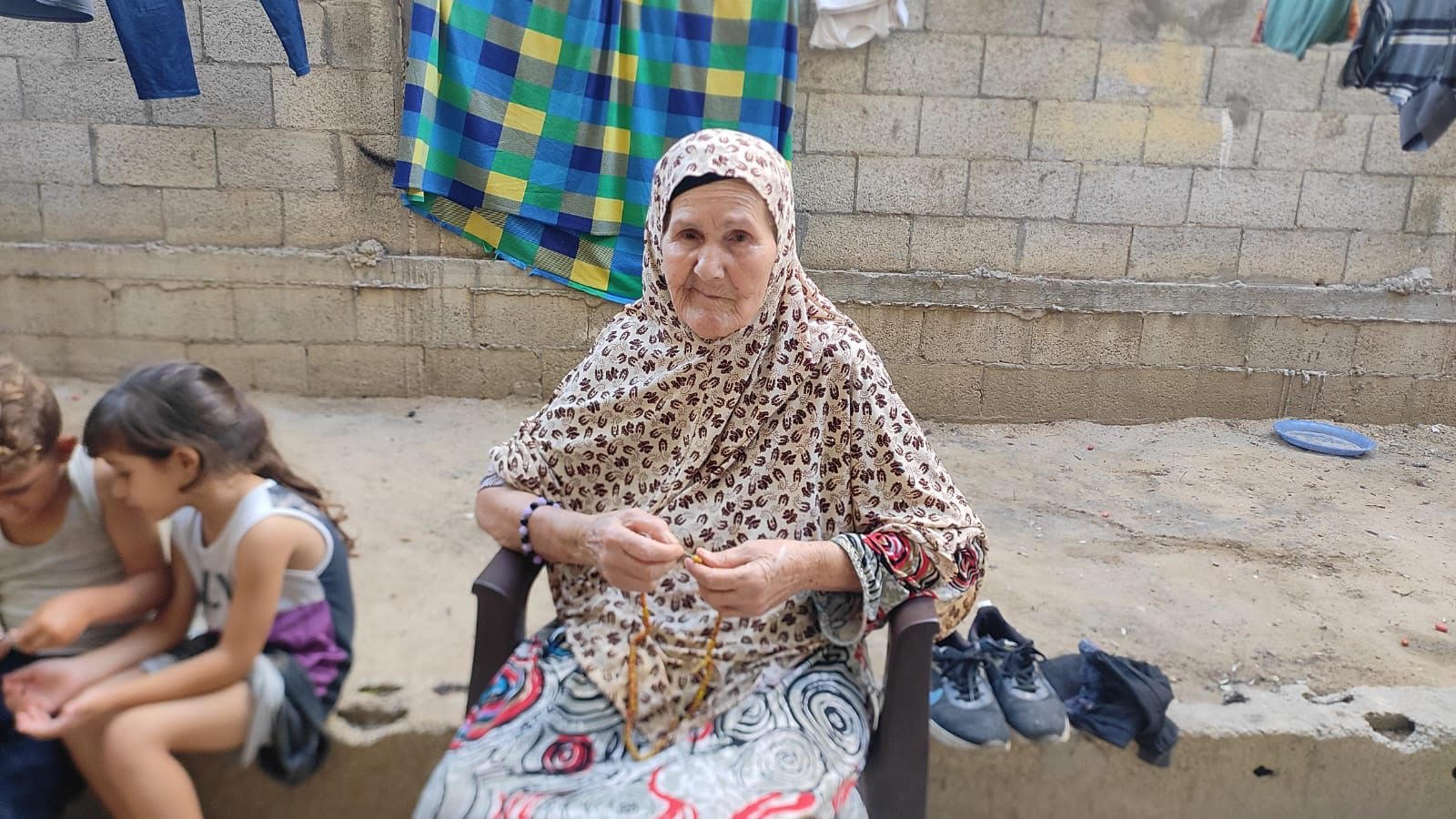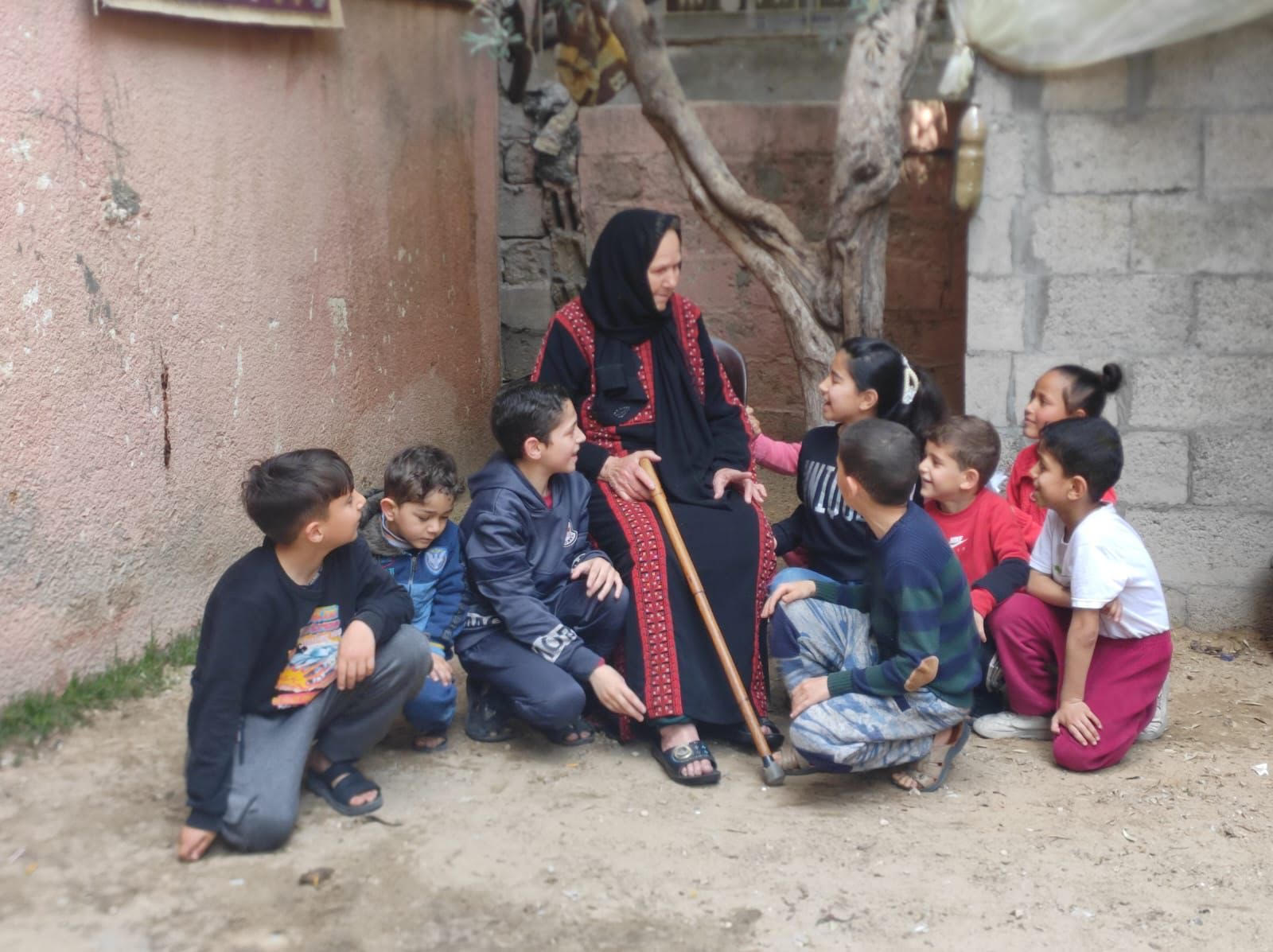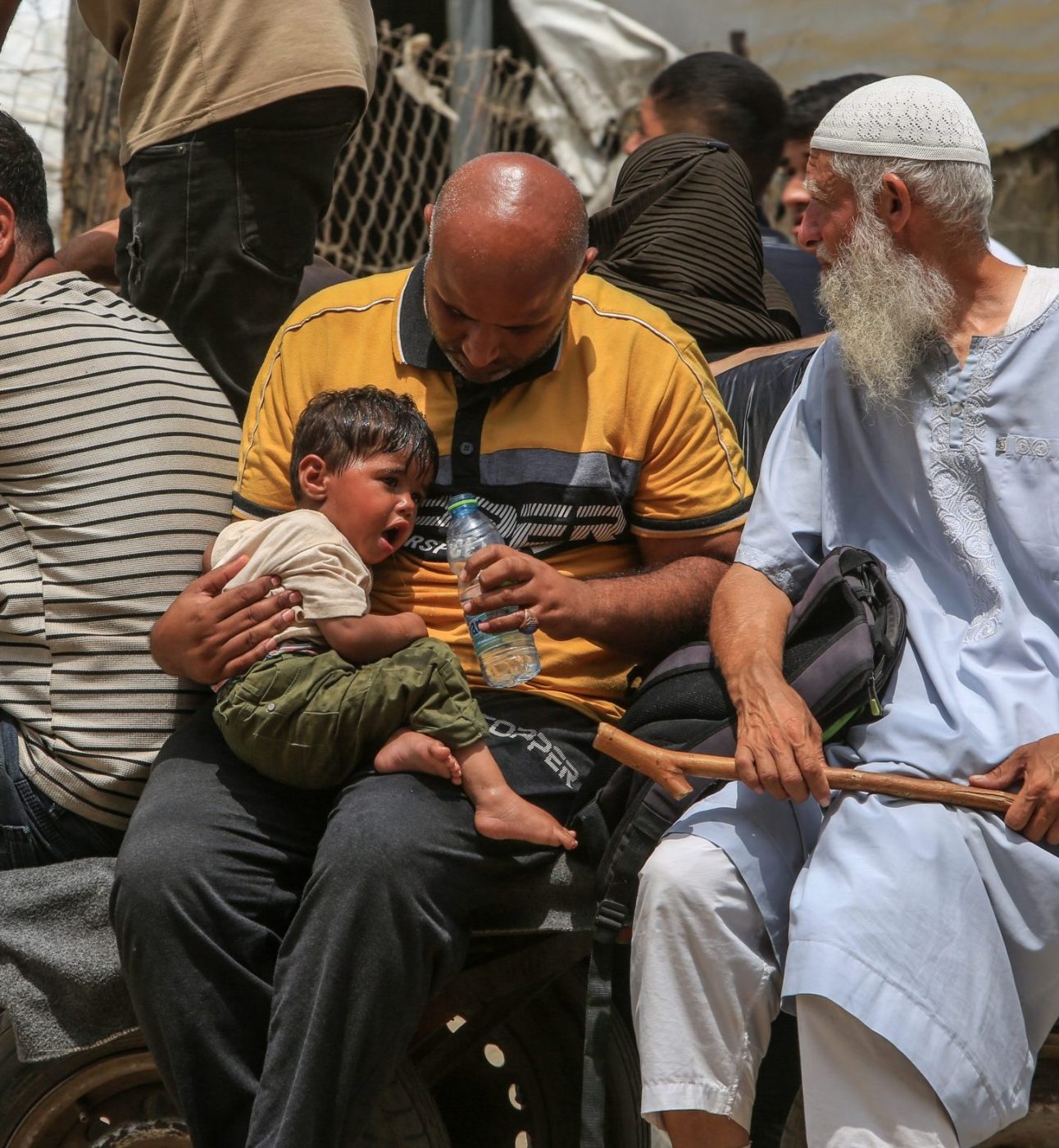The war in Gaza has been raging for almost a year now, sparing no one, regardless of age. For older people, the past 12 months have been particularly painful. Forced from their homes, grappling with illness, and suffering one displacement after the other, their plight is often overlooked in the broader narrative of conflict.
Fatima Shahda, or “Umm Ashraf,” is 82 years old. Despite her frail health, she has been forcibly displaced multiple times in the past year: from her hometown of Beit Lahia in the north of the Gaza Strip, to Gaza City, then to tents in Rafah, Khan Younis, Deir al-Balah, and al-Zawayda. Finally, to the Nuseirat refugee camp in central Gaza where she lives in a tent with one of her sons.



